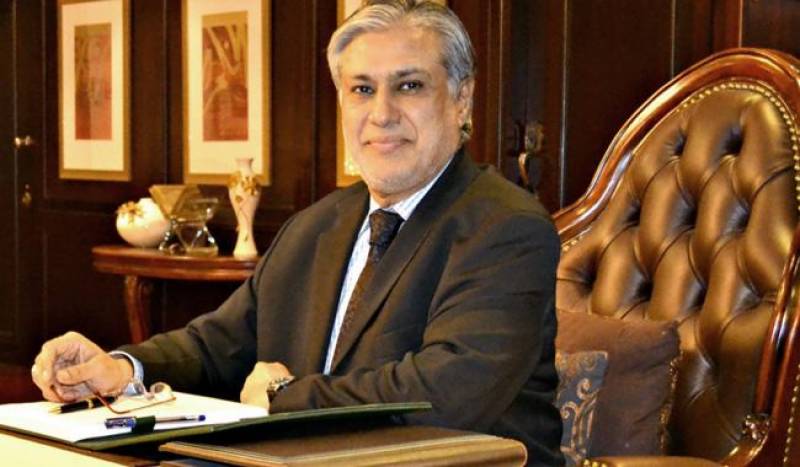‘Those predicting Pakistan’s default should be ashamed’; Promises reforms for country’s long-term improvement
Finance Minister Ishaq Dar on Saturday once again ruled out the possibility of Pakistan’s default and promised that reforms are in the works for the country’s “long-term improvement”.
Talking to a delegation of the Karachi Chamber of Commerce and Industry in Islamabad, the financial czar vowed to collectively steer the country out of current economic challenges.
Dar further stated the Ministry of Finance will bring an agricultural revolution and will also establish a sovereign wealth fund. He said that the IT sector will also be a focus, adding that he is determined to take steps that were ignored in the past.
The finance minister also informed the delegation that the delay in the International Monetary Fund programme is unprecedented as there is ‘no technical reason behind it’.
“Pakistan is a sovereign country having assets worth trillions of dollars,” he maintained.
Dar added that the country’s external liabilities are around $100 billion but at the same time, only one asset – gas infrastructure – is worth around 40 to 45 billion.
The finance minister also asked the business community to put forward reasonable demands with regard to the upcoming budget, assuring the government will cooperate with them.
“God-willing, we will be coming up with new ideas in the weeks to come. There will be the budget and some work after that as well for Pakistan’s long-term betterment. We will bring an agricultural revolution in Pakistan, [and] a sovereign wealth fund will be created,” he said.
At the outset of his address, Dar admitted that the tough economic decisions taken by the government had put an “undoubtedly great burden on the business community and the common man”.
At one point, he stated that the government’s top priority was to ensure that “there is not a single day’s delay in Pakistan’s sovereign commitments”.
Dar asserted that there had been no such delay thus far.
In a fresh salvo directed at former finance czar Miftah Ismail, Ishaq Dar said that those predicting Pakistan’s default should be “ashamed” of themselves.
Dar’s anger was directed at his party colleague and former minister, who had recently said that the country would default in October sans the revival of the stalled International Monetary Fund’s programme.
Ismail, who was removed as the finance minister in September last year, told journalists recently that the delay in the IMF programme had pushed the country’s economy into “current troubles”.
Recounting the economic difficulties the country faced in 2014, the minister said that one year was difficult but then “everything was normal once things had settled down”.
The PML-N leader went on to claim that Pakistan had become the “best economy in South Asia” and the policy rate was 6.5pc when the PTI government took over.
According to Dar, there were “only two options” available with the parties currently in power when they took over in 2022 — either to “let the previous government stay [in power] and wait for complete destruction to take place, god forbid or to take a bold decision”.
Admitting that the government knew it would not be easy to deal with the economic crises, the minister said they took the difficult decision of “taking responsibility […] no matter the loss to the political capital”.
He then asserted that the “most difficult reforms have taken place” and expressed hope that there would be no issues in multilateral dealings as well.










